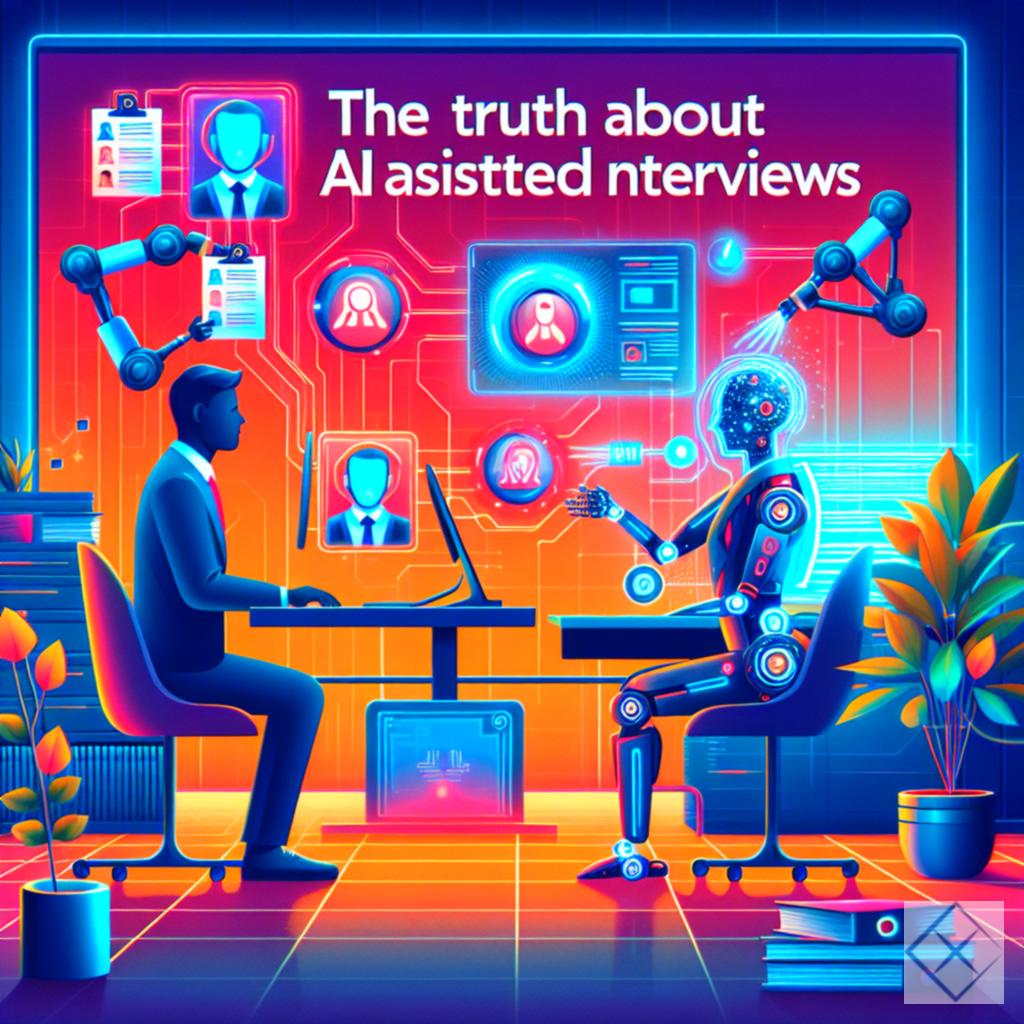The Truth About AI-Assisted Interviews

The Truth About AI-Assisted Interviews
As technology continues to seep into every facet of our lives, the recruitment process has not been left untouched. One of the most significant advancements in this area is the rise of AI-assisted interviews. While some hail these tools as the future of hiring, others raise concerns about their implications. In this blog post, we will explore the truth about AI-assisted interviews, examining both their advantages and potential drawbacks.
The Rise of AI in Recruitment
AI-assisted interviews leverage algorithms and machine learning to enhance the recruitment process. These tools can analyze candidate responses, assess body language through video interviews, and even compare applicants against successful profiles from previous hires. The goal? To streamline the hiring process and help recruiters focus on the most suitable candidates.
Advantages of AI-Assisted Interviews
-
Efficiency: AI can process vast amounts of data quickly, significantly reducing the time spent on initial screenings. This allows human recruiters to concentrate on the more nuanced aspects of hiring.
-
Bias Reduction: With proper training, AI can help mitigate unconscious biases that often plague human interviewers. By focusing on data-driven assessments, AI can promote a more diverse candidate pool.
-
Consistency: AI ensures that each candidate is evaluated against the same criteria, leading to a more uniform hiring process. This consistency can be crucial, especially in large organizations with high volumes of applicants.
Potential Pitfalls of AI-Assisted Interviews
While the benefits of AI-assisted interviews are compelling, it is essential to consider their limitations and potential pitfalls:
-
Lack of Human Touch: Interviews are not just about qualifications; they also assess cultural fit and interpersonal skills. AI might miss subtle cues that a human interviewer would pick up on, such as enthusiasm or authenticity.
-
Data Privacy Concerns: The use of AI in recruitment raises questions about data security and privacy. Candidates may be apprehensive about how their data is used and stored, which can impact their perception of the company.
-
Over-reliance on Algorithms: If not correctly calibrated, AI can perpetuate existing biases found in historical hiring data. Organizations must ensure that their AI tools are regularly audited and updated to avoid reinforcing inequalities.
Key Takeaways
As with any technology, the effectiveness of AI-assisted interviews largely depends on how they are implemented. Here are a few strategic recommendations for organizations considering these tools:
-
Complement, Don’t Replace: Use AI to enhance human judgment rather than replace it. Consider AI as a preliminary screening tool, while final evaluations should involve human interviewers.
-
Regularly Audit AI Systems: Ensure that the algorithms are regularly tested for biases and adjusted accordingly to reflect the evolving goals of diversity and inclusion within your organization.
-
Transparent Communication: Be open with candidates about how their data will be used and the role AI plays in the hiring process. Transparency fosters trust and can mitigate concerns about using AI in recruitment.
Conclusion
AI-assisted interviews present a fascinating opportunity to reshape the hiring landscape. By understanding both their advantages and the potential pitfalls, organizations can strategically integrate these tools into their recruitment processes. Ultimately, the goal should be to combine the efficiency of AI with the empathy and insight that only human recruiters can provide.
Top Comments
We invite readers to share their thoughts and experiences with AI-assisted interviews. What have been your observations? Have you encountered any challenges or successes that you would like to discuss? Your insights could help foster a rich dialogue about the future of hiring in the age of AI.